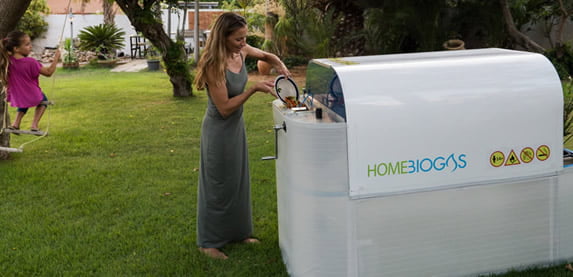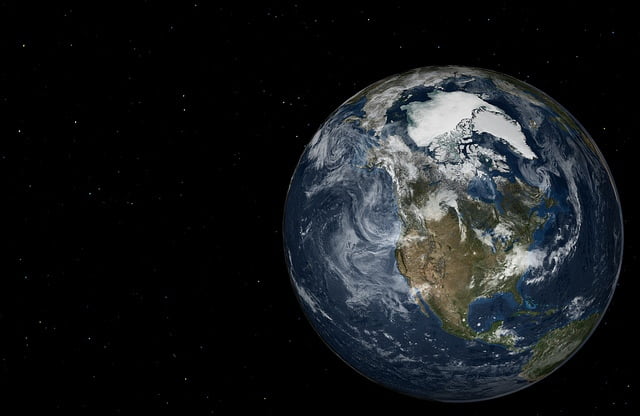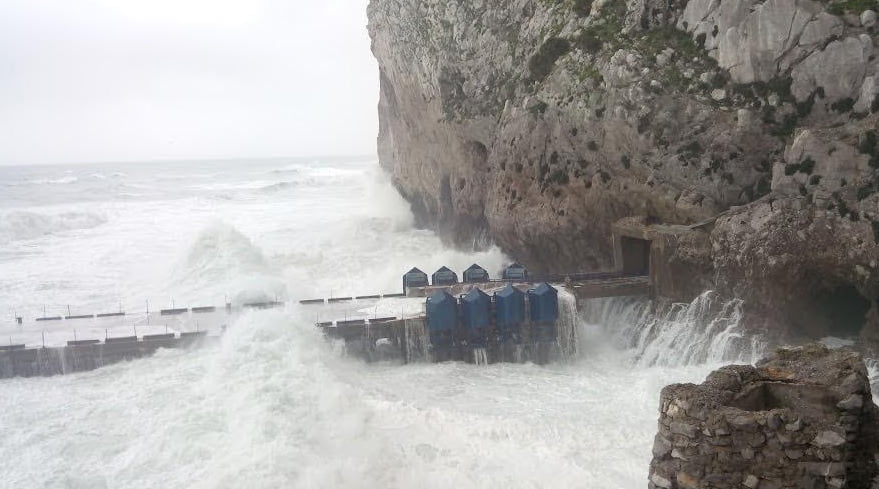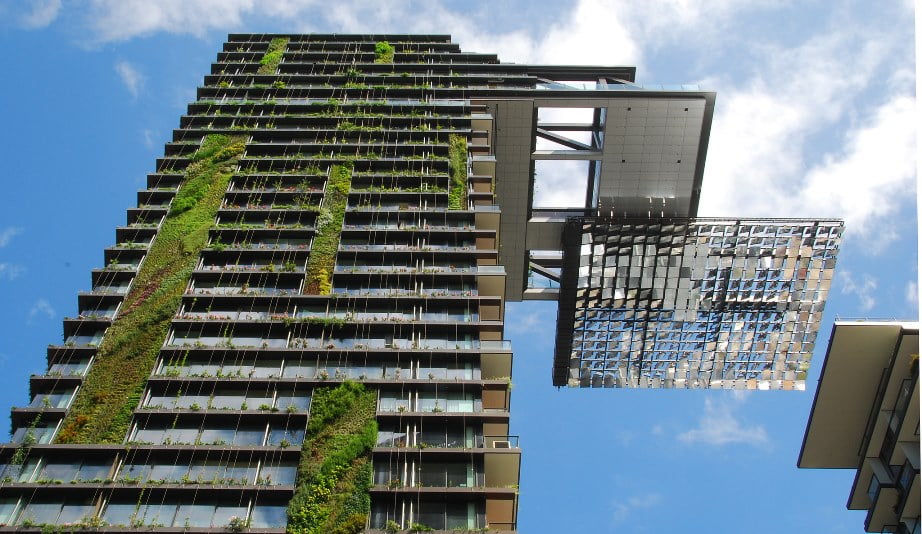“It’s not easy being green,” Kermit the Frog famously sang. While that may be true for some, many Israeli startups are helping the world go ‘green.’ By using innovative technologies which can lead to more environmentally friendly and ecologically responsible decisions and lifestyles, they help protect the environment and sustain its natural resources for current and future generations.
In honor of International Mother Earth Day (or, in short, Earth Day), which is celebrated annually on April 22, here are 10 of the coolest Israeli companies and technologies making our world greener:
Tal-Ya: Growing more food with less water
Water shortage is a pressing issue worldwide: According to the UN, 1.2 billion people (almost one-fifth of the world’s population) live in areas where water is scarce, and another 500 million people are nearing this situation. It’s no wonder, then, that the world is seeking to conserve water – both for drinking and for agriculture -especially during droughts.
SEE ALSO: Israeli Desalination Technology Helps Solve California’s Drought
Fortunately, Israeli company Tal-Ya Agriculture Solutions has developed technologies designed to grow more food with less water. Its reusable plastic trays capture dew from the air, reducing the water needed by crops by 50 percent. The square tray, which costs $3-$5 per piece, is made of recycled plastic. The innovative trays work by surrounding each plant, collecting dew as the weather changes overnight, and funneling it to plants and tree crops. The trays, which are supposed to last for 10 years, also block weeds that would otherwise compete with crops for water.
Since its founding in 2005, Tal-Ya (which means ‘God’s dew’ in Hebrew) has served farmers in Israel, the US, China, Chile, Georgia, Sri Lanka and Australia.
Phresh: Keeping your fruits and veggies crisp
One-third of the food produced around the globe, which is worth roughly $1 trillion, is lost or wasted during its production or consumption. In the US alone, 30-40 percent of the food supply is wasted – more than 20 pounds of food per person per month.
Israeli startup Phresh came up with unique food protectors, which preserve your fruits and vegetables for three times longer and could save each household up to $400 a year from the loss of spoiled fruits and vegetables, while also limiting humankind’s environmental footprint.
Using organic technology to triple the shelf life of fruits and vegetables, Phresh allows people to enjoy healthier foods for longer periods of time. The product comes in the shapes of an apple (red or gold) and robot (white), in which Phresh’s organic, non-toxic powder is inserted. The powder dissolves into the atmosphere and eliminates bacteria and fungi while oxygenating the area, according to the company. As a result, no physical application upon the produce is required, and no additional smells or tastes can be sensed. Phresh is designed to extend the shelf life of cucumbers, tomatoes, potatoes, eggplants, apples, lemons, lettuce, grapes, mushrooms, strawberries and pepper.
HomeBiogas: Turning grabage into cooking gas
Now that you’ve kept your fruits and vegetables fresh, what should you do with the scraps?
HomeBiogas is an Israeli startup that has created a self-assembled biogas system that turns kitchen waste and livestock manure into usable cooking gas and liquid fertilizer. The system can produces clean cooking gas for three meals and 10 liters of clean natural liquid fertilizer.
HomeBiogas empowers homeowners to minimize their gas bills, while significantly reducing dangerous greenhouse gas emissions and pollutants entering our groundwater.
Opgal: Detecting leaks to prevent pollution
Air pollution was shown to be responsible for many diseases, including cancer. Israeli startup Opgal checks the joints on the pipes that transport gas, oil, and chemicals. Its EyeCGas FX, a gas-leak detection infrared camera can quickly detect gas emissions such as ethylene, methane, butane and propane. It then automatically alerts plant managers.
BreezoMeter – Tracking air quality around the globe
Israeli mobile app BreezoMeter tracks pollutants and determines air quality in nearly every corner of the world. Its big-data analytics platform uses local air-monitoring sensors to gather real-time pollution data. The information is collected by the startup from monitoring stations around the world and is then compiled and packaged to provide up-to-date information about air quality. The startup claims its localized pollution reading is 99 percent accurate.
Sign up for our free weekly newsletter
SubscribeSEE ALSO: What’s In The Air You Breathe?
BreezoMeter can’t change the fact that pollutants are a fact of life in our modern world, but the app does give consumers better knowledge of their surroundings, in hopes that they can then act on that knowledge. “We empower citizens to better plan their daily activities and to minimize their personal exposure to pollution,” BreezoMeter’s co-founder and CMO Ziv Lautman said in a statement.
Utilight: 3D-printed solar panels
Solar power is rapidly gaining momentum as the world’s alternative source of energy. One Israeli company at the forefront of harvesting sustainable energy is Utilight, a Yavne-based startup founded in 2009, which is using 3D printing methods to create solar cells at faster and cheaper manufacturing rates than conventional solar panels.
BioBee: Using insects to control pests
Before you swat that fly away, think twice; it may be on a mission to help make our planet greener. Israel’s Kibbutz Sde Eliyahu, a pioneer in organic agriculture, has successfully left its mark on chemical-free farming with its very own company BioBee. The firm, which was established in 1984, specializes in breeding beneficial insects and mites to help propel agricultural growth in open fields and greenhouses.
Through its subsidiary Bio Fly, the company sells pollinating bumblebees and sterile male Mediterranean fruit flies to help control pests. This well-established firm already exports eight different species of biological control agent to 30 nations, including the US, Japan and Chile.
The idea behind the system is to achieve a balance between the pest population and their natural enemies. If this balance is achieved, the spraying of pesticides can be reduced to a minimum, and agricultural produce can safely be collected without fear of chemical residues.
HARBO: Keeping oil spills contained
We’ve all seen news reports of tragic oil spills that destroy entire marine ecosystems, often spreading hundreds of miles within the first 24 hours. According to the US Environmental Protection Agency, tens of thousands of oil spills occur every year, and the prevention technology to deal with their aftermath has not changed in over three decades. Moreover, recovery rates continue to hover just below 15 percent, a figure that has not improved much over the years, making many of the cleanup efforts seem almost futile.
SEE ALSO: Volcanic Rock To Clean Up Oil Spills
Israeli startup company HARBO Technologies tackles this tough environmental problem using an easy-to-use “floatie” it has developed, which can contain an oil spill in less than one hour. It simply circles the spill and “encapsulates” it; then, the oil “stain” is lifted and disposed of – away from the water. HARBO’s 100-foot prototype “boom” (floating barrier) contains up to two tons of crude oil overnight, without leaking, according to the company.
Eco Wave Power: Turning ocean waves into energy
Water covers three-quarters of the earth’s surface, but the world has yet to capitalize on the power of ocean waves, even though the energy that can be harvested from oceans is equal to twice the amount of electricity that the world produces now, according to the World Energy Council.
Israeli startup Eco Wave Power is taking giant steps forward in the field of renewable energy harvested from the sea. Founded in 2011, Eco Wave Power (EWP) turns water into electricity using uniquely shaped buoys (floating devices), which rise and fall with the waves’ up-and-down motion and the changes in water levels.
GreenWall: Grow your own food in a vertical garden
Vertical gardens, in which residents of high-rise buildings can grow their own food, use minimal amounts of water and soil, thereby conserving natural resources. Israeli company GreenWall, which was founded in 2009 by engineer and gardening pioneer Guy Barness, has developed an advanced technology with which it erects gardens that line the walls, both inside and outside of buildings, taking up less space compared to conventional gardens and capable of growing almost every plant species with proper care.
Kermit was probably right; it’s not easy being green, but that doesn’t deter Israeli startups from making our world a little greener.
Photos and videos: Maojin Lang, the companies
Related posts

Resilient And Nutritious New Plant-Based Milk Aims To Make A Splash

Chocolate From Cultivated Cocoa Comes Without Environmental Toll

Plastic Fantastic: Startup Takes PVC Back To Its Crude Oil Roots









Facebook comments